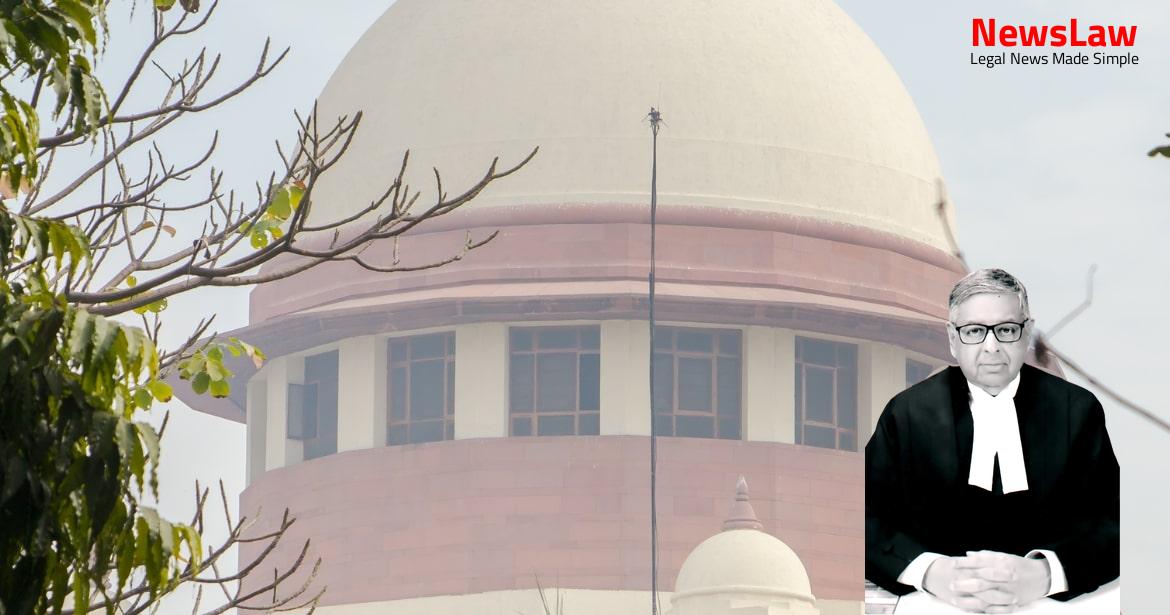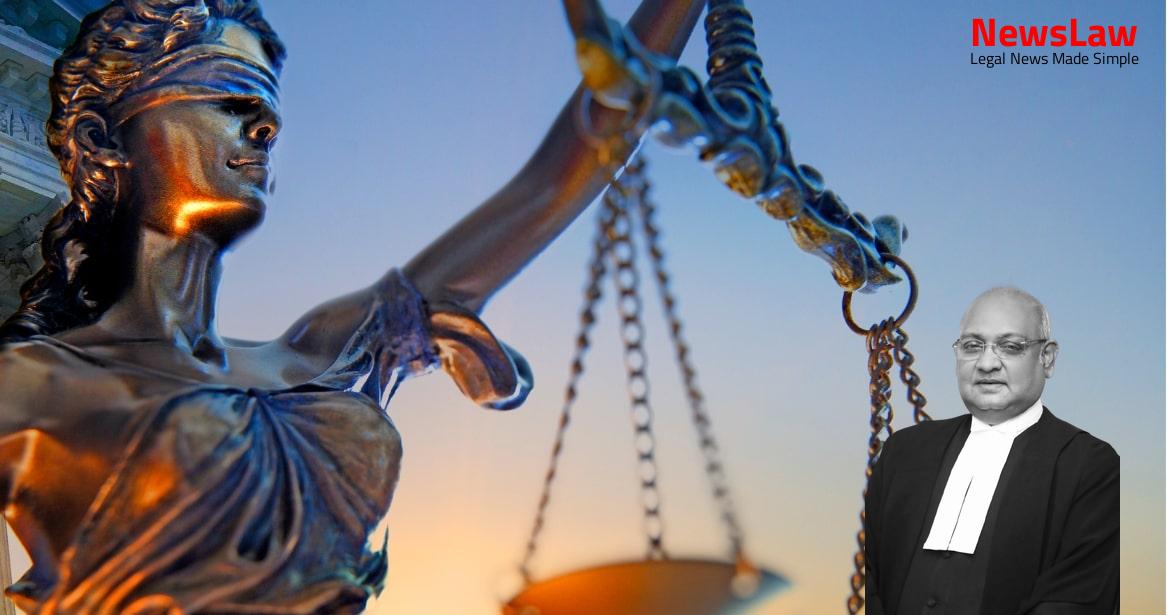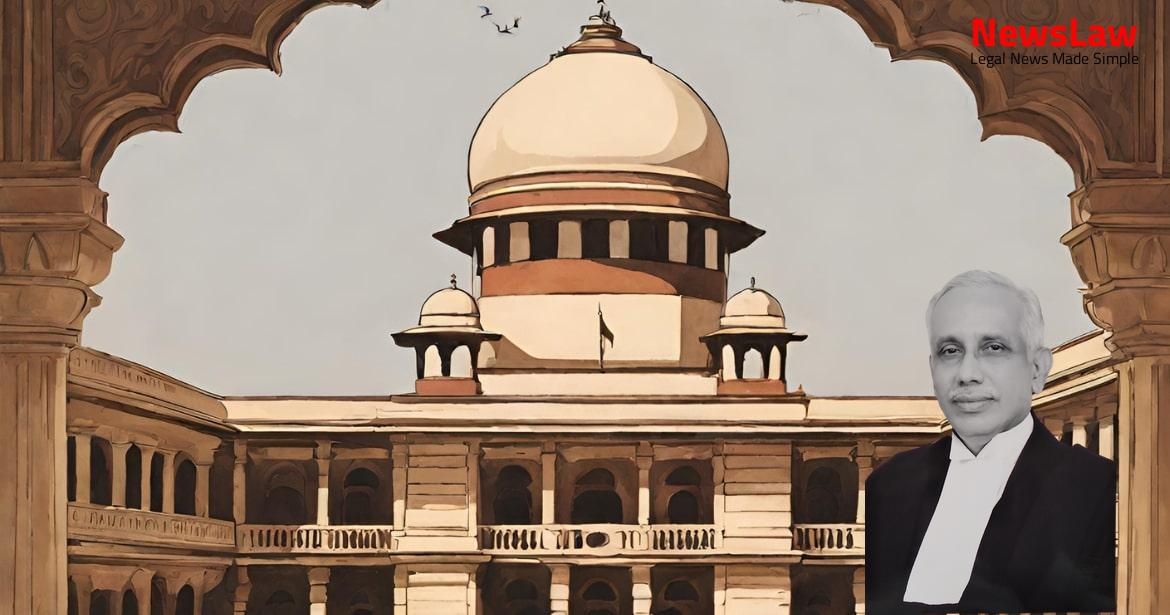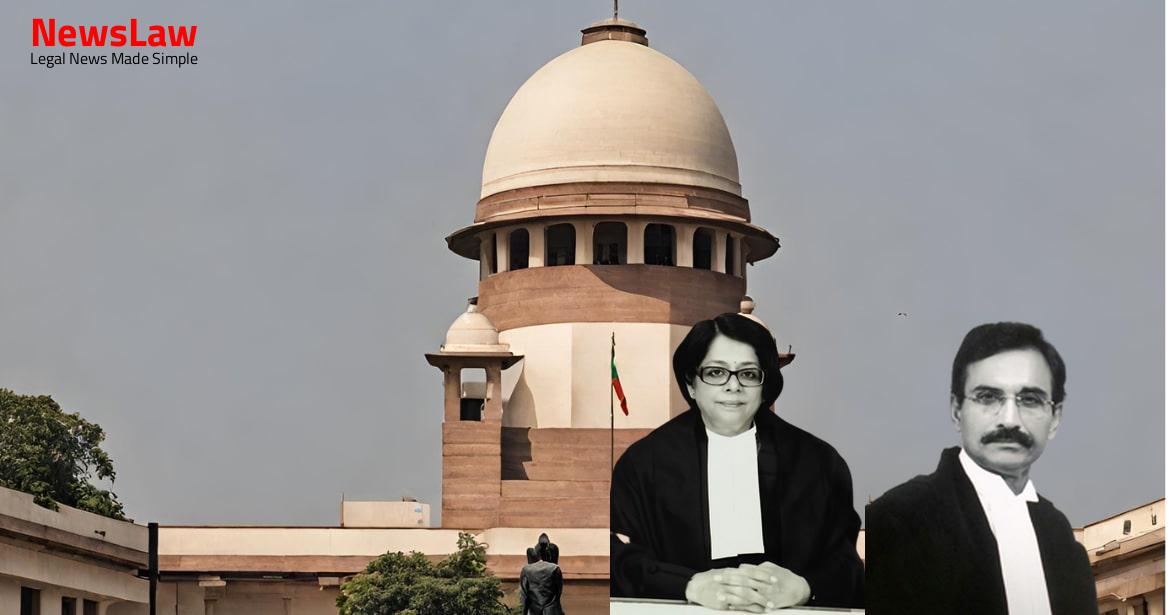In a recent High Court case, the court undertook a thorough legal analysis of impleadment and the significance of necessary parties in court proceedings. The focus was on examining the impact of non-impleadment on the validity of legal decisions and ensuring all relevant parties are included for a fair judgment. Let’s delve into the complexities of impleadment in legal proceedings and its implications on court decisions.
Facts
- Members of each Central Armed Police Force permitted to make comprehensive representations to Ministry of Home Affairs for amendment of Recruitment Rules
- Ministry of Home Affairs directed to undertake review of existing Recruitment Rules in compliance with DoPT OMs
- Department of Personnel and Training directed to take necessary action on receipt of decision from Ministry of Home Affairs
- Petitioners allowed to make representations to Department of Personnel and Training for Cadre Review due in 2021
- Department of Personnel and Training to ensure timely commencement of Cadre Review exercise in 2021
- Entire exercise to be concluded by 30th June 2021
Also Read: Contractual Interpretation in Real Estate Dispute
Issue
- The real question before the court is the correctness of the decision of the High Court in the Sangh Case
- The applicants are not challenging the legality of the judgment on the ground of non-joinder of necessary parties
- The applicants seek to be heard on the conflict points involved in the petitions
- The main question to be examined is whether the applicants can be given access to the petitions as parties
Also Read: Non-compliance with requirements of Section 81(3) of the Representation of the People Act, 1951
Arguments
- The petitioners are impeaching the validity of policy decisions on the grounds of violating Articles 14 and 16 of the Constitution.
- The argument is made that the applicants (IPS officers) are not necessary or proper parties in the proceedings.
- IPS (Cadre Rules) 1954 allow for deputation in senior posts with central deputation reserve limits.
- The petitioners argue that the applicants have no legal right to central deputation and no vested legal right for senior cadre posts in CAPFs.
- The relief sought includes amendments to existing Rules for filling senior administrative grade posts by deputation.
- The High Court had heard the counsel for IPS officers before denying their impleadment.
- Citing Prabodh Verma vs State of Uttar Pradesh, it is argued that IPS officers have the right to be impleaded based on individual service rules.
- The petitioners aim to eliminate deputation by IPS officers in CAPFs and fill senior administrative posts from within the service only.
- Applicants’ claim for entry to the proceedings is based on the potential adverse impact on their potential deputation to senior administrative posts of CAPFs.
- The applicants argue that their right to be considered for deputation to senior administrative posts of CAPFs would be affected if they are not allowed to participate in the proceedings.
- The applicants contend that their professional growth and opportunities could be hindered if they are not given the chance to be engaged in the senior administrative posts of CAPFs.
- The court needs to consider the potential impact on the applicants’ future career growth and opportunities in the CAPFs.
Also Read: Setting Minimum Qualifying Marks for Viva Voce: A Question of Legality
Analysis
- The High Court should not decide a writ petition under Article 226 of the Constitution without the persons who would be vitally affected by its judgment being before it as respondents or at least by some of them being before it as respondents in a representative capacity if their number is too large.
- Non-joinder of necessary parties was identified as a defect in the proceedings, where necessary parties are those against whom the relief is sought and in whose absence no effective decision can be rendered by the court.
- The case of direct recruits was not unrepresented as some direct recruits led by Mr. Chitkara appeared through counsel and made submissions on behalf of the direct recruits.
- Intervention of the Indian Police Service Central Association was not allowed, but they were heard in the proceedings.
- The contention that relief cannot be given to the appellant due to members who scored higher in the seniority list not being impleaded as respondents was not accepted.
- Names of respondents were deleted by the High Court in an order, but it was reasoned that the case of direct recruits was not unrepresented based on the representation made.
- The relief was claimed against the Union Government and not against any particular individual, thus not likely to fail on technical grounds.
- The case of direct recruits has not gone unrepresented, as their presence was seen in the proceedings through representation.
- The writ petitioners did not challenge the qualification of any individual candidate but argued that candidates claiming a qualification equivalent to a CCC Certificate were included without proper scrutiny.
- They contended that computer certificates issued by private organizations and unregistered societies without recognition from the State Government, Central Government, or any statutory body should not be considered valid.
- Although the Division Bench acknowledged the argument of non-impleadment of all selected candidates in the writ petition, it did not base its judgment on this issue.
- In cases where a large number of candidates are included in a select list through an arbitrary or illegal process, the requirement to implead each candidate may not be necessary.
- Given that the select list contained 2211 candidates, impleading every candidate was deemed unnecessary due to the nature of the challenge presented in the writ petition.
- Some selected candidates were also impleaded in the writ petitions in a representative capacity.
- The caveators have the right to be notified of the lodging of Special Leave Petitions (SLPs) as per Order XV of the Supreme Court Rules, 2013.
- Merely filing a caveat application does not automatically make them a party to the proceeding or grant them entry into a Petition for Special Leave to Appeal.
- Filing a Caveat does not entitle them to be treated as a party in the case.
Decision
- The applications are disposed of and the association is granted leave to apply for being impleaded before the appropriate Bench of the Court.
- The legitimacy of the Association was questioned but not determined in this order.
- Necessary amendments and alterations of records are to be made based on this order.
- No costs are to be awarded.
- The petitions for Special Leave to Appeal included a main prayer and a prayer for interim relief.
- The main prayer requested Special Leave to Appeal against a specific judgment by the High Court of Delhi.
- The prayer for interim relief mentioned the potential impact on IPS officers if deputationists are excluded from senior administrative posts in CAPFs.
Case Title: SANJAY PRAKASH Vs. UNION OF INDIA (2021 INSC 310)
Case Number: SLP(C) No.-012158 / 2020



